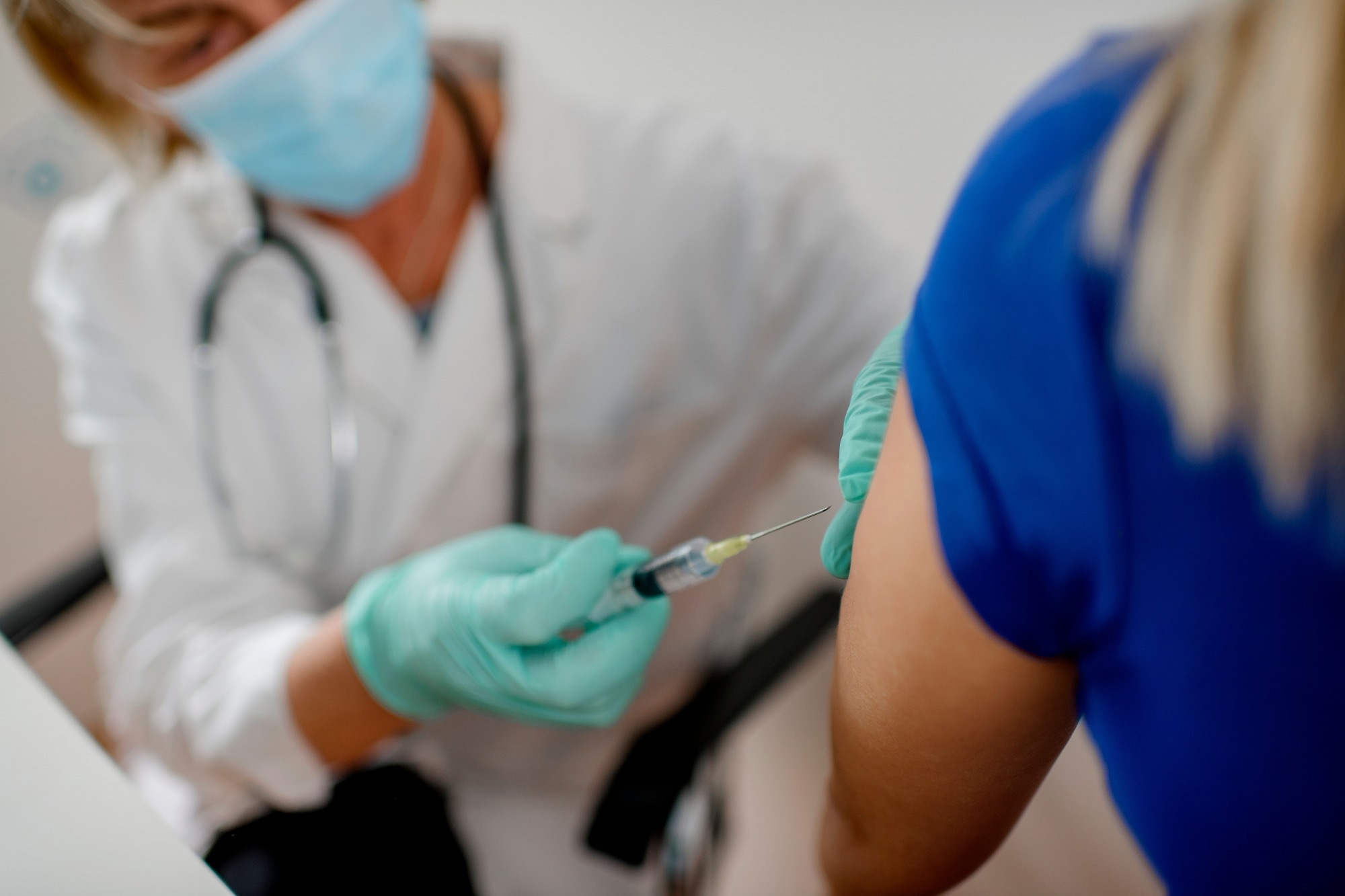Infection
The protective effect of previous infections and vaccinations on SARS-CoV-2 Omicron infection
Hybrid immunity has been acquired by significant percentage of the population through previous infection with the severe acute respiratory syndrome coronavirus 2 (SARS-CoV-2) and coronavirus disease 2019 (COVID-19) vaccination. A new Nature Communications study estimates the protective effect of hybrid immunity on infection with the SARS-CoV-2 Omicron variant in a prospective community-based cohort study conducted in the Netherlands.
Study: Effects of COVID-19 vaccination and previous infection on Omicron SARS-CoV-2 infection and relation with serology. Image Credit: mother_ana / Shutterstock.com
Background
The high transmissibility and immune evasiveness of the SARS-CoV-2 Omicron variant of concern (VOC) and its subvariants have led to numerous successive waves of new COVID-19 cases. The first Omicron infection in the Netherlands was detected in November 2021, with the Omicron BA.1 accounting for 90% of sequenced infections by January 2022. Since then, Omicron subvariants BA.1, BA.2, and BA.5 have emerged.
The Netherlands experienced considerable waves of SARS-CoV-2 Omicron infections and, combined with the high adult vaccination coverage, most of the Dutch adult population has acquired hybrid immunity. Thus, it is important to assess the potential benefit of booster vaccination in this population.
About the study
To analyze hybrid immunity, registry-based studies are becoming less suitable, as self-administered antigen testing has become more common, thereby replacing laboratory testing in many settings. To overcome this challenge, the current study utilized results from self-administered antigen tests and data on circulating SARS-CoV-2 nucleoprotein (N) antibodies.
VAccine Study Covid (VASCO) is a five-year prospective cohort study based in the Netherlands that comprises approximately 45,000 Dutch community-dwelling participants. The key aim of VASCO is to evaluate the efficacy of COVID-19 vaccination on SARS-CoV-2 infection.
The risk of Omicron infection was estimated by sequence and the number of prior immunizing events including previous infections and vaccine doses. The researchers also considered the type of prior immunizing events including infection-induced, vaccine-induced, or hybrid immunity. Associations between the risk of infection and types of prior immunizing events were also explored.
Key findings
Conditional on an equal number of prior immunizing events, individuals with hybrid immunity were at a lower risk of contracting infection than those with vaccine-induced immunity. This finding is in line with a prior systematic review and meta-analysis indicating that hybrid immunity reduced the risk of Omicron infection as compared to booster vaccination without prior infection.
A higher mean spike (S)-antibody concentration indicated a lower risk of infection in participants with hybrid immunity. This finding is consistent with a previous study that showed greater Omicron-neutralizing S-antibody levels in individuals with hybrid immunity as compared to those with vaccine-elicited immunity. Although antibody levels of both hybrid and vaccine-induced immunity declined over time, a faster waning of protection was observed with hybrid immunity.
Each quartile increase in S-antibody concentration led to a significant decrease in infection risk. Likewise, previous studies have indicated that S-seropositive individuals are at a lower risk of infection with the Omicron variant as compared to seronegative individuals.
The current study provided evidence to support the role of S-antibodies in conferring protection against the Omicron variant. In addition to S-antibody concentration, hybrid immunity also reduces the risk of Omicron variant infection through virus neutralization capacity, which is dependent on antibody levels, binding strength, and cellular immunity.
The mucosal antibody response also protects against Omicron infection; however, these antibodies wane at a much faster rate as compared to serum antibodies. Therefore, if the strong protection induced by hybrid immunity is partially linked to mucosal antibodies, the decrease in the additional protection for individuals with hybrid immunity, as compared to vaccine-induced immunity, could be due to this decline in mucosal immunity.
There was no evidence implying that people with hybrid immunity were at a higher risk of Omicron infection as compared to those with infection as a first immunizing event. Since no effect of the sequence of immunization events was observed, hybrid immunity does not appear to be dependent on recent infection. Rather, hybrid immunity is due to the combination of previous infection with vaccination that confers strong immunity against SARS-CoV-2 variants, including the Omicron variant.
Strengths and limitations
A key strength of this study is the use of serology to assess unreported infection along with self-administered antigen test findings in this study. This combined data allowed the researchers to investigate the pattern of risk of infection and S-antibody concentrations.
The self-reported study design increased the risk of misclassification of both infected and vaccinated individuals. Furthermore, the pooling of the Omicron subvariants including BA.1, BA.2, BA.5, and, to a lesser extent, BA.4, adds to the study limitations. The pooled analysis of all types of COVID-19 vaccines is another limitation of this study, as different vaccine technologies induce varied antibody concentrations.
Despite these limitations, the current study highlights that hybrid immunity confers better protection against SARS-CoV-2 Omicron infection as compared to vaccine-induced immunity alone. The protection induced by hybrid immunity does not depend on the sequence of immunizing events.

